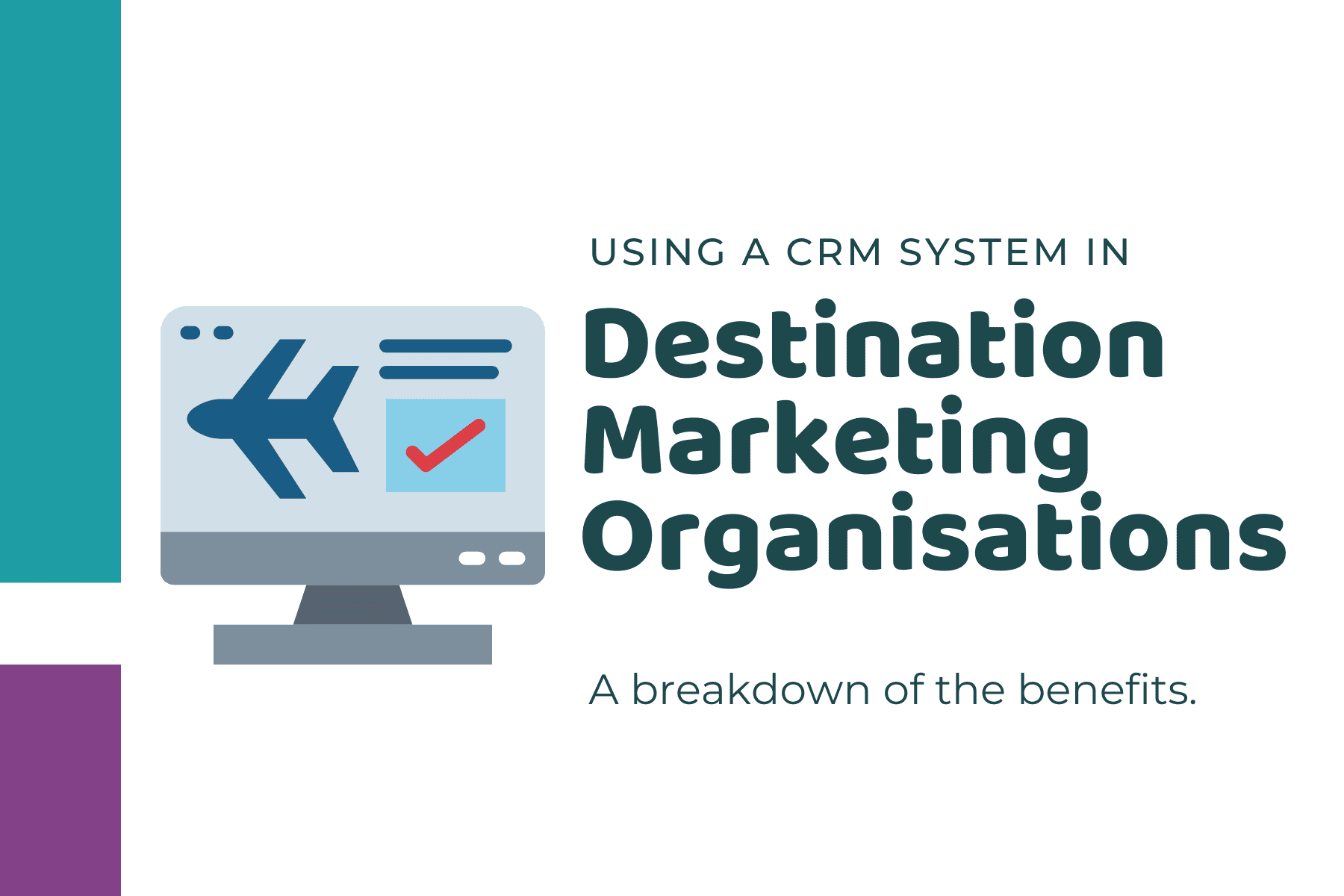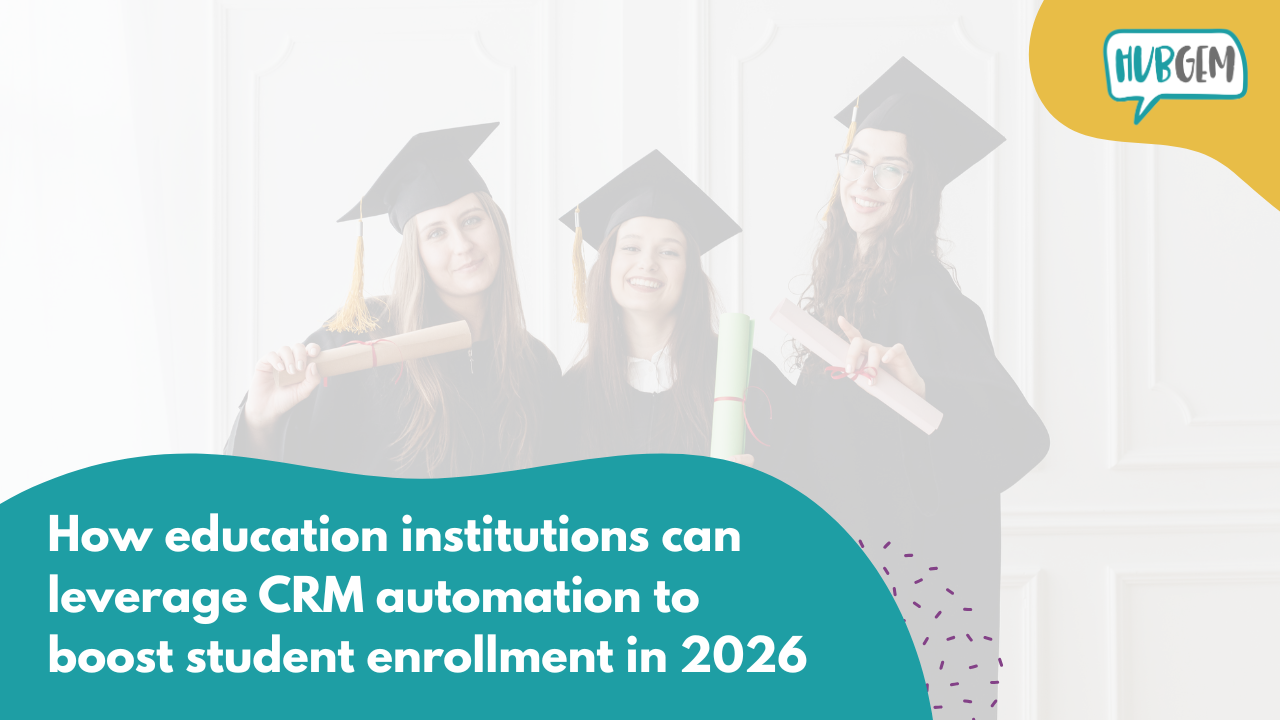With one central place to organise all the details of your leads and customers, CRMs make it easy for everyone on your team to gain insight into the state of your business, and the status of every customer relationship.
What is a DMO?
As defined by VisitBritain, Destination Marketing Organisations - or DMOs - are organisations that "take a lead role in managing and developing tourism in your area and can cover more than one county. They may provide marketing opportunities, training courses, networking events and industry expertise to help develop your business."
DMOs have many various setups and labels - 'Tourism Board', 'Visitors Bureau' - and, through effective travel and tourism strategising. they play a key role in the long-term development of a destination.
DMOs act as a gateway for visitors to access local Tourism, Hospitality, Retail and Attraction businesses, and in reverse for those businesses to reach the visitors.
Being able to capture, store and segment a database of contacts by what type of stakeholder they are is very valuable, Being able to filter that further by industry type, member type, level of engagement or by any other bespoke data point you'd like to be able to organise your data by is infinitely more valuable.
And that's when CRM systems come into play.
What is a CRM?
CRM stands for Customer Relationship Management and HubSpot helpful describes it "CRM software is a system for managing relationships with your customers.
For most businesses, their most valuable and important asset is their customers. In the early days at a lot of companies, the details about those customers -- who they are, how they’ve interacted with your organisation -- are spread out in many different places. The CEO’s brain, a sales rep's inbox, the accountant’s stack of invoices.
As a business grows, it quickly becomes necessary to have one central place where all of this information lives.
Your team will be slowed down without quick answers to important questions. Who are our customers? How do we get in touch with them? How do they interact with our content? What does our pipeline of new business look like?
Your prospects and customers will feel the pain when your team isn’t on the same page. From their perspective, they have a relationship with one company, not a collection of different people and departments. Everyone on your team needs context about every customer’s needs, wants, and current state, so they can pick up the conversation where it left off.
These are the problems that CRM systems are designed to solve. With one central place to organise all the details of your leads and customers, it’s easy for everyone on your team to gain insight into the state of your business, and the status of every customer relationship."
HubSpot is one such CRM system which can be utilised by Tourism businesses and DMO's to optimise lead capture and data management, with the objective of growth.
The benefits of a DMO using a CRM for B2B
HubSpot CRM will enable DMO's to optimise their business-to-business sales processes and partner service satisfaction.
- Contacts and Companies Databases:
A database of custom-built property fields bespoke to the needs of a DMO will enable effective database segmentation, and therefore personalised communications via smart content. The ability to assign 'parent-child' relationships to numerous businesses within the database and associate multiple contacts to a company is very useful.
- Target Accounts:
With HubSpot DMOs can highlight businesses with potential to convert into a partner / member of the organisation. This will enable direct relevant communications to be targeted to these accounts aimed at 'getting them over the line'.
- Chatflows:
Chatflows can be planned and built to be hosted on brand facebook messenger and/or brand domains to direct B2B enquiries or partners to the relevant resources or member of staff.
- Automated Workflows:
Lead generation, lead nurturing, onboarding and customer retention journeys can be automated via HubSpot workflows, to streamline processes and boost team efficiency.
- Sales Pipelines:
Building bespoke sales pipelines to view where leads sit within the sales process will ensure every lead is worked
- Meetings:
Integrating your teams online calendars will enable meetings links to be set up which will streamline booking processes, and also empower the person booking the meeting (partner / member)
- Forecasting:
Set financial goals and use revenue set in the sales pipeline to forecast and review goal attainment.
- Accounting Integrations:
For end-to-end visibility into partner journey, send invoices from within HubSpot and automate tasks related to invoicing
- Support Tickets:
Create B2B support pipelines, for both existing and potential partners, to track support requests
- Feedback Surveys:
Build and distribute partner / member surveys to analyse partner satisfaction, and evolve partner processes based on feedback
- Knowledge Base:
Build Knowledge Base of B2B FAQs, helps to boost customer service, get leads over the line and improve SEO
- Dashboard build:
Build dashboards of custom reports to provide easy access to real time key metrics for key stakeholders. These can be scheduled to send out at set intervals.
How a CRM can benefit the B2C processes of a DMO
HubSpot CRM will also help DMOs to optimise B2C marketing processes and customer service.
- Contacts and Companies Database:
As with B2B contacts, properties can be built to capture data bespoke to each individual DMOs set up which can then be used to filter the data. This allows for all contacts - both b2b and b2c - to be stored in one place.
- Chatflows:
As with B2B, chatflows can be hosted on brand facebook messenger and/or brand domain to direct B2C enquiries to the relevant resources or member of staff
- Strategy Implementation:
Lead generation, lead nurturing, onboarding and retention customer journey assets (inclusive of blogs, landing pages, social posts, forms, marketing emails and hosted documents) can be automated via workflows.
- Campaigns:
Build campaigns to track asset engagement and conversion rates
- Sales Pipelines:
Integrate eCommerce such as the TXGB platform and build bespoke sales pipelines to view eCommerce transactions and abandoned carts.
- Forecasting:
Set financial goals and use revenue set in the B2C sales pipeline to forecast and review goal attainment, added value for partners / members.
- Support Tickets:
Create B2C support pipelines to track and manage support requests
- Feedback Surveys:
Build and distribute customer surveys to analyse satisfaction, and evolve processes based on feedback, useful data for your paying destination marketing partners.
- Knowledge Base:
Build an 'online tourist information centre' with a Knowledge Base of B2C FAQs, this helps to boost customer service and improve SEO.
- Dashboard build:
Again, dashboards of custom reports can be built to send to relevant stakeholders.
Next Steps:
The HubGem Team are HubSpot and inbound marketing specialists with years of experience across the non-profit sector. We can support with implementation of inbound marketing methods, lead capture and conversion strategies.
Our familiarity with the Tourism sector means we are uniquely placed to help you increase the impact of your communication efforts. We live and breathe HubSpot, and our bespoke onboarding and strategic advice is designed specifically to make the most of the HubSpot tools and deliver results.
We'd love to work with you, click the button below to find out more:
.png?width=150&height=101&name=HUBGEM%20Logo%20-%20smaller%20logo%20(1000%20x%20673).png)


.png)





